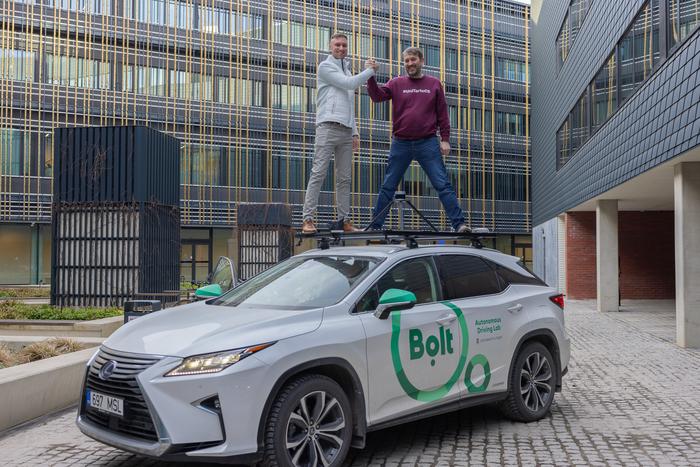The University of Tartu Institute of Computer Science and Clevon AS have signed a three-year cooperation agreement, enabling a teleoperation system for the Autonomous Driving Lab’s test vehicle. Attendees at the technology demonstration were able to remotely control the car located nearly three kilometres away in the parking lot of the Estonian National Museum.

Credit: Photos taken by Lotte Parksepp
The University of Tartu Institute of Computer Science and Clevon AS have signed a three-year cooperation agreement, enabling a teleoperation system for the Autonomous Driving Lab’s test vehicle. Attendees at the technology demonstration were able to remotely control the car located nearly three kilometres away in the parking lot of the Estonian National Museum.
According to Tambet Matiisen, the technology manager of Autonomous Driving Lab, teleoperation systems are important. “Remote control is an important technical solution in today’s autonomous vehicles, allowing the vehicle to seek assistance from a human in unexpected traffic situations, such as roadworks or traffic jams,” said Matiisen. He added that this allows the self-driving car to travel outside the mapped area, for example, to drop off passengers at their doorstep instead of the nearest bus stop.
Clevon emphasises the importance of cooperation with the university. “Collaboration provides us with valuable feedback to further develop our platform and create new solutions that meet both current and future transportation needs,” explains Clevon CEO Sander Sebastian Agur. In addition to new development directions, Clevon is interested in contributing to science and potential research focusing on autonomy or teleoperations.
According to Tambet Matiisen, further research is warranted on the remote control solution. “For example, we plan to investigate the situational awareness of the remote operator: how well does a person who is not actually in the car perceive the traffic situation? We also want to test the cybersecurity of the technology, and how easy it would be for a potential attacker to take over control of the car. Finally, we aim to develop alternative control methods, such as an option for the remote operator to see their surroundings from a bird’s-eye view or through virtual reality glasses,” Matiisen explained.
Clevon and the University of Tartu believe that the three-year cooperation agreement will yield many fruitful projects in the field of self-driving vehicles.
Method of Research
Meta-analysis
Subject of Research
Not applicable



